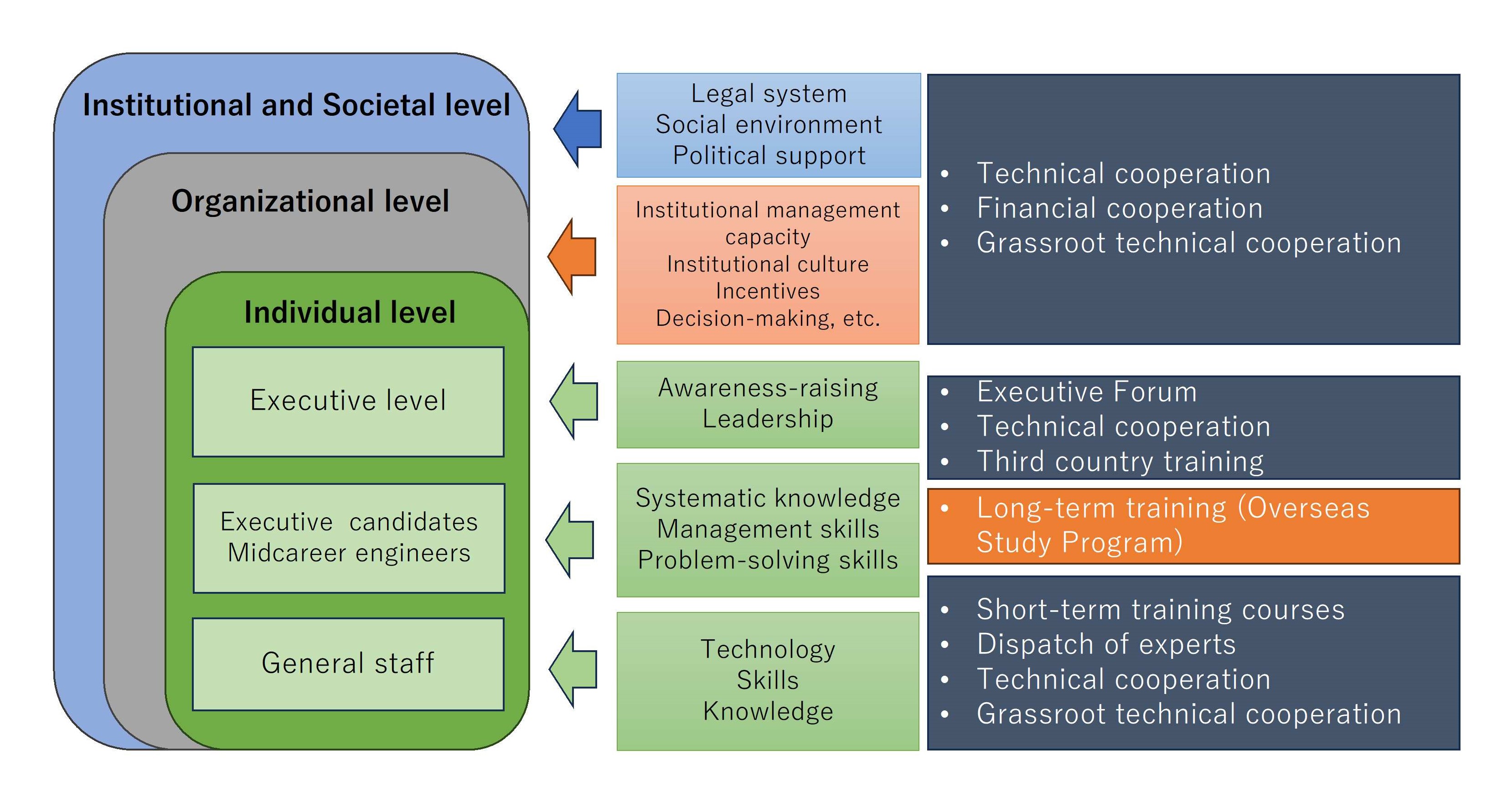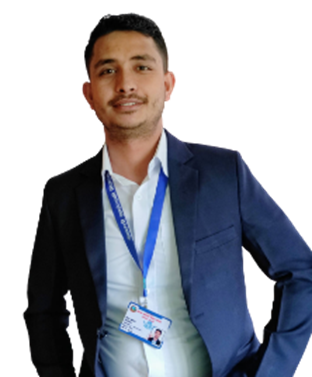Executive Forum


Background and Objectives
The Executive Forum is for executives of water utilities and ministries with water supply jurisdiction in Asia and Sub-Saharan Africa, and fosters increased awareness and commitment among executives through a "learning from each other" forum where participants share best practices and exchange opinions, with the goal of creating a healthy water utility that can provide sustainable water services in the future. The Executive Forum also serves as a forum for networking and the exchange of useful information not only among participants but also between participants and Japanese waterworks and others.
Contents
In the Asian region, five forums have been held since 2010, and in the Sub-Saharan Africa region, two forums have been held so far since 2019. Details of each forum are as follows.
【Executive Forum for Enhancing Sustainability of Urban Water Service in Asian Region】
| 1st | 2nd | 3rd | 4th | 5th | |
|---|---|---|---|---|---|
| Period | January 20-22, 2010 | September 30-October 6, 2011 | July 1-4, 2014 | August 1-4, 2017 | August 22-25, 2023 |
| Location | Yokohama Symposia | JICA Research Institute | Yokohama Symposia | Yokohama Symposia | Yokohama Symposia |
| Main theme | From a Vicious Circle to a Virtuous Circle | Dialogue and Collaboration | Sustainable Management of Water Utilities in Asia | Take action toward the next step | Co creating Resilient and Sustainable Water Supply Service from Asia |
| Participating countries and number of people from Asia |
32 persons from 9 countries (India, Indonesia, Philippines, Sri Lanka, Pakistan, Bangladesh, Cambodia, Thailand, Vietnam) |
13 persons from 5 countries (Cambodia, Philippines, China, India, Indonesia, Pakistan) |
31 persons from 12 countries (India, Indonesia, Cambodia, Sri Lanka, Thailand, Nepal, Bangladesh, Pakistan, Philippines, Myanmar, Laos) |
32 persons from 13 countries (Bangladesh, Cambodia, India, Indonesia, Laos, Myanmar, Nepal, Pakistan, Philippines, Sri Lanka, Thailand, Timor-Laste, Vietnam) |
29 persons from 10 countries (Bangladesh, Cambodia, Indonesia, Laos, Nepal, Pakistan, Philippines, Sri Lanka, Thailand, Vietnam) |
| Total attendance |
314 people | 50 people | 360 people | 310 people | 495 people |
【Executive Forum for Enhancing Sustainability of Urban Water Services in Sub - Saharan Africa 】
| 1st | 2nd | |
|---|---|---|
| Period | November 13-14, 2019 | March 7-9, 2023 |
| Location | Kigali City, Rwanda | Johannesburg, South Africa |
| Main theme | - | Utility Management for Sustainable Water Supply Services |
| Participating countries and number of people from Sub-Saharan Africa |
36 persons from 8 countries (Sudan, Kenya, Tanzania, Malawi, Zambia, South Africa, Rwanda) |
27 persons from 11 countries (Ethiopia, Uganda, Kenya, Tanzania, Rwanda, Zambia, Malawi, Mozambique, Madagascar, Nigeria, South Africa) |
| Total attendance | 93 people | 70 people |
Related Links
JICA Development Studies Programme


Background and Objectives
JICA provides training programs (Group Training / Long-term Training (study abroad programs)) for the knowledge and skills required in each country for human resources, in Japan and other countries to play a central role in the development of developing countries in the relevant fields.
JICA provides systematic and comprehensive capacity-building cooperation at three levels (individual, organizational, and social) in developing countries. Training programs are mainly targeted at the individual level, of which Group Training is for general staff within water utilities and ministries, and long-term training (study abroad programs) is for mid-career engineers and executive candidates.

JICA's long-term training (study abroad program) offers for core Human Resources in Developing Countries the opportunity to learn about Japan's modernization and development experiences, which differs from those of Europe and the U.S., and its wisdom as a country that provided cooperation toward the progress of developing countries after World War II., in addition to education and research in specialized fields within university degree programs.
These programs are called “JICA Development Studies Program (JICA-DSP)”, and in the field of water resources, “Water Engineering and Utility Management Future Leaders Training Program” is conducted as a long-term training program (study abroad program) for human resources who can become the next generation of leaders in the water supply field in developing countries. The University of Tokyo and Toyo University accept students from developing countries.
Contents
1. Program Features
① Problem-solving research
• Collecting data and conducting surveys in each home countries, focusing on issues related to local water supply and other research topics.
• Aiming to develop human resources capable of solving problems through their own analysis.
② Strategic selection
• Selecting candidates in cooperation with the executives of the foreign students' home institutions, university professors who will provide guidance, and JICA experts.
• Also looking to maintain and strengthen relationship with Japan by selecting people from among those involved in JICA projects, etc., and engaging them in JICA projects after they return to their home countries.
③ Cooperation from Japanese local governments, companies, etc.
• Offering few-days internships and site visits at Japanese water utilities and companies. The following water utilities and companies have accepted us (including online) so far.
| Waterworks and Sewerage Bureau, City of Kawasaki |
Saitama City Waterworks Bureau | Nagoya City Waterworks and Sewerage Bureau |
| KUBOTA Corporation. | Sapporo City Waterworks Bureau | Fukuoka City Waterworks Bureau |
| Kitakyushu City Water and Sewer Bureau |
Zama City Waterworks and Sewerage Bureau |
Maezawa Industries, Inc. |
| Saitama Prefectural Public Enterprise Bureau |
Water Utility of Chichibu Large Municipal Area Union |
Yokohama Waterworks Bureau |
| Sayama City Water and Sewerage Part | Japan Water Agency |
④ Sharing Japan's Development Experience
• In lectures and other classes, we use the educational material "Japan's Experiences on Water Supply Development" to help students learn about good examples and lessons learned from Japan's waterworks projects.
• In order to expand the opportunities of such Japanese studies in partner countries as well, JICA now started the “JICA Chair (JICA Program for Japanese studies)” in collaboration with leading universities in partner countries. The "JICA Chair" lecture videos by Prof. Satoshi TAKIZAWA, Department of Urban Engineering, Graduate School of Engineering, the University of Tokyo are also being used in the target countries under this program.
2. Acceptance Records
| Asian region | African region |
|---|---|
|
Graduate School of Engineering, The University of Tokyo Prof. Satoshi TAKIZAWA, Associate Professor Dr. Shinobu KAZAMA, and Project Assistant Professor Dr. Benyapa Sawangjang |
Graduate School of Global and Regional Studies, Toyo University Prof. Hidetoshi KITAWAKI and Prof. Toshiya ARAMAKI |
| Acceptance start: September 2018 | Acceptance start: September 2020 |
| Number of students accepted: ~5/year (Master's program) | Number of students accepted: 3-5/year (Master's program) |
|
Target countries: 8 Asian countries Indonesia, Cambodia, Sri Lanka, Thailand, Nepal, Pakistan, Myanmar, Laos |
Target countries: 5 African countries Kenya, Tanzania, Malawi, Republic of South Africa, Rwanda |
|
Acceptance record and plan:
2018: 1 in Cambodia, 2 in Myanmar, 1 in Laos (Completed) 2019: 2 in Indonesia, 1 in Nepal, 1 in Myanmar (Completed) 2020: 2 in Indonesia, 1 in Cambodia 1 in Sri Lanka, 1 in Pakistan (Completed) 2021: 1 in Indonesia, 1 in Nepal, 1 in Pakistan, 1 in Myanmar, 1 in Laos (Completed) 2022: 2 in Indonesia, 1 in Nepal, 1 in Laos |
Acceptance record and plan:
2020: 1 in Kenya, 1 in Malawi, 1 in Rwanda (Completed) 2021: 2 in Malawi, 1 in Rwanda (Completed) 2022: 1 in Tanzania, 1 in Malawi, 1 in Republic of South Africa, 1 in Rwanda 2023: 1 in Kenya, 1 in Tanzania, 1 in Malawi 2 in Rwanda |
3. Voices of Graduates

Nepal: Mr. Shekhar Khanal
"Prior to coming to Japan, I worked as an engineer on the Melamchi Water Supply Project in Nepal. Intrigued by the challenges of water supply in the Kathmandu Valley, I sought to understand how Japan manages 24/7 drinking water supply in a densely populated urban environment. Through lectures, site visits, and internships, I gained insight into Japanese water supply management, including water quality, leakage control, and long-term vision. This two-year experience far exceeded my expectations and broadened my global perspective on water utility management. I am deeply grateful to JICA for providing me with this wonderful opportunity."
"Prior to coming to Japan, I worked as a civil engineer for the Water and Sanitation Authority under the jurisdiction of the Punjab Provincial Government in Pakistan. My participation in this program has provided me with the expertise, skills, and perspective necessary to address pressing water challenges and make a positive contribution to society. I look forward to using this experience to make a meaningful impact not only in the field of water engineering, but in other areas as well. Beyond academics, I have been deeply captivated by the fascinating essence of Japanese culture and have been instilled with a deep appreciation for the possibilities of multiculturalism."

Pakistan: Mr. Najeeb Farooq
4. Papers published so far
• Abbas, M., Kazama, S., Takizawa, S., Water demand estimation in service areas with limited numbers of customer meters-Case study in Water and Sanitation Agency (WASA) Lahore, Pakistan, Water, 14, 2191, 2022.
https://doi.org/10.3390/w14142197
• Alfonso, S. M., Kazama, S., Takizawa, S., Inequalities in access and consumption of safely managed water due to socio-economic factors: Evidence from Quezon City, Philippines, Current Research in Environmental Sustainability, 4, 2022.
https://doi.org/10.1016/j.crsust.2021.100117
• Indrastuti, Kazama, S., Takizawa, S., Evaluation of microbial contamination of groundwater under different topographic conditions and household water treatment systems in Special Region of Yogyakarta Province, Indonesia, Water, 13, 1673, 2021.
https://doi.org/10.3390/w13121673
• Khaing K. S., Kazama, S., Takizawa, S., Assessment of billed-unmetered water consumption to improve water utility management in Yangon City, J. JSCE Ser. G (Environmental Research), Vol. 63, No. 7, III277-III285, 2020.
https://doi.org/10.2208/jscejer.76.7_III_277
• Khanal, S., Sawangjanb, B., Kazama, S., Takizawa, S., Performance assessment of household water treatment and safe storage in Khatmndu Valley, Nepal. Water, 15, 2305, 2023.
https://doi.org/10.3390/w15122305
• Mitria, W., Sawangjanb, B., Kazama, S., Takizawa, S., Assessment of water reclamation and reuse in Bali Province, Indonesia, Water, 15, 2642, 2023.
https://doi.org/10.3390/w15142642
• Phea, S., Kazama, S., Takizawa, S., Performance assessment for increasing connection rates of private water supply operators in Cambodia. 2369, 2022.
https://doi.org/10.3390/w14152369
• Purwandari, T. W., Kazama, S., Takizawa, S., Water consumption analysis of small islands supplied with desalinated water in Indonesia, J. JSCE, Ser. G ( Environmental Research), Vol. 77, No. 7, III-129-III_140, 2021.
https://doi.org/10.2208/jscejer.77.7_III_129
• Shresta, A., Kazama, S., Takizawa, S., Influence of service levels and COVID-19 on water supply inequalities of community-managed service providers in Nepal, Water, 13, 1349, 2021.
https://doi.org/10.3390/w13101349
• Taftazani, R., Kazama, S., Takizawa, Spatial analysis of groundwater abstraction and land subsidence for planning the piped water supply in Jakarta, Indonesia. Water, 14,3197, 2022.
https://doi.org/10.3390/w14203197
• Urfanisa, D., Kazama, S., Takizawa, S., Evaluation of a slum upgrading program for improvement of water supply in Bandung City, Indonesia. Water, 14, 3025, 2022.
https://doi.org/10.3390/w14193025
• Zin, N. N., Kazama, S., Takizawa, S., Network model analysis of residual chlorine to reduce disinfection byproducts in water supply systems in Yangon City , Myanmar, Water, 13, 2921, 2021.
https://doi.org/10.3390/w13202921




scroll